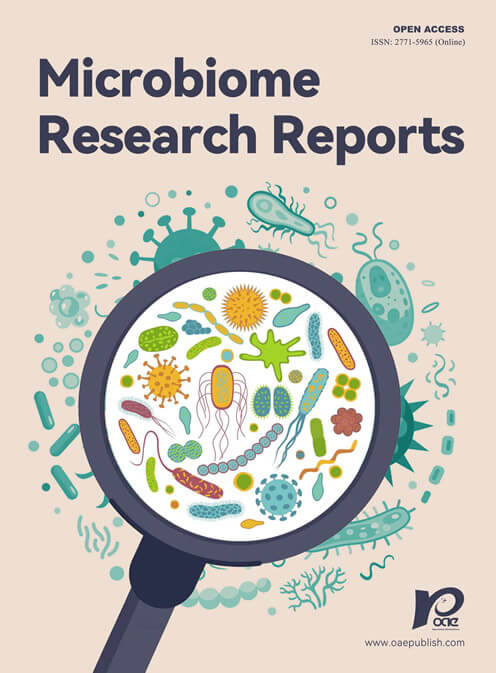REFERENCES
1. Morgan E, Arnold M, Gini A, et al. Global burden of colorectal cancer in 2020 and 2040: incidence and mortality estimates from GLOBOCAN. Gut. 2023;72:338-44.
3. Botteri E, Peveri G, Berstad P, et al. Lifestyle changes in middle age and risk of cancer: evidence from the European Prospective Investigation into Cancer and Nutrition. Eur J Epidemiol. 2024;39:147-59.
4. Seethaler B, Nguyen NK, Basrai M, et al. Short-chain fatty acids are key mediators of the favorable effects of the Mediterranean diet on intestinal barrier integrity: data from the randomized controlled LIBRE trial. Am J Clin Nutr. 2022;116:928-42.
5. Cheng E, Ou FS, Ma C, et al. Diet- and lifestyle-based prediction models to estimate cancer recurrence and death in patients with stage III colon cancer (CALGB 89803/Alliance). J Clin Oncol. 2022;40:740-51.
6. Mehta RS, Nishihara R, Cao Y, et al. Association of dietary patterns with risk of colorectal cancer subtypes classified by Fusobacterium nucleatum in tumor tissue. JAMA Oncol. 2017;3:921-7.
7. Wang K, Lo CH, Mehta RS, et al. An empirical dietary pattern associated with the gut microbial features in relation to colorectal cancer risk. Gastroenterology. 2024;167:1371-83.e4.
8. Papier K, Bradbury KE, Balkwill A, et al. Diet-wide analyses for risk of colorectal cancer: prospective study of 12,251 incident cases among 542,778 women in the UK. Nat Commun. 2025;16:375.
9. Papadimitriou N, Kazmi N, Tsilidis KK, et al. Identifying metabolomic mediators of the physical activity and colorectal cancer relationship. Cancer Epidemiol Biomarkers Prev. 2025.
10. Jiang F, Zhao J, Sun J, et al. Impact of ambient air pollution on colorectal cancer risk and survival: insights from a prospective cohort and epigenetic Mendelian randomization study. EBioMedicine. 2024;103:105126.
11. Bruno A, Dovizio M, Milillo C, et al. Orally ingested micro- and nano-plastics: a hidden driver of inflammatory bowel disease and colorectal cancer. Cancers. 2024;16:3079.
12. Stein MJ, Baurecht H, Bohmann P, et al. Diurnal timing of physical activity and risk of colorectal cancer in the UK Biobank. BMC Med. 2024;22:399.
13. Ogino S. Abstract IA019: molecular pathological epidemiology of tumor microbiota and immunity can give etiologic insights. Cancer Res. 2022;82:IA019.
14. Akimoto N, Ugai T, Zhong R, et al. Rising incidence of early-onset colorectal cancer - a call to action. Nat Rev Clin Oncol. 2021;18:230-43.
15. Spaander MCW, Zauber AG, Syngal S, et al. Young-onset colorectal cancer. Nat Rev Dis Primers. 2023;9:21.
16. Capdevila J, Gómez MA, Guillot M, et al. SEOM-GEMCAD-TTD clinical guidelines for localized rectal cancer (2021). Clin Transl Oncol. 2022;24:646-57.
17. Cheng F, Zhang R, Sun C, et al. Oxaliplatin-induced peripheral neurotoxicity in colorectal cancer patients: mechanisms, pharmacokinetics and strategies. Front Pharmacol. 2023;14:1231401.
18. van der Valk MJM, Hilling DE, Bastiaannet E, et al; IWWD Consortium. Long-term outcomes of clinical complete responders after neoadjuvant treatment for rectal cancer in the International Watch & Wait Database (IWWD): an international multicentre registry study. Lancet. 2018;391:2537-45.
19. Zwart WH, Hotca A, Hospers GAP, Goodman KA, Garcia-Aguilar J. The multimodal management of locally advanced rectal cancer: making sense of the new data. Am Soc Clin Oncol Educ Book. 2022;42:1-14.
20. Fokas E, Ströbel P, Fietkau R, et al; German Rectal Cancer Study Group. Tumor regression grading after preoperative chemoradiotherapy as a prognostic factor and individual-level surrogate for disease-free survival in rectal cancer. J Natl Cancer Inst. 2017;109:djx095.
21. Cercek A, Roxburgh CSD, Strombom P, et al. Adoption of total neoadjuvant therapy for locally advanced rectal cancer. JAMA Oncol. 2018;4:e180071.
22. Thomas AM, Manghi P, Asnicar F, et al. Metagenomic analysis of colorectal cancer datasets identifies cross-cohort microbial diagnostic signatures and a link with choline degradation. Nat Med. 2019;25:667-78.
23. Wirbel J, Pyl PT, Kartal E, et al. Meta-analysis of fecal metagenomes reveals global microbial signatures that are specific for colorectal cancer. Nat Med. 2019;25:679-89.
24. Serna G, Ruiz-Pace F, Hernando J, et al. Fusobacterium nucleatum persistence and risk of recurrence after preoperative treatment in locally advanced rectal cancer. Ann Oncol. 2020;31:1366-75.
25. Gur C, Ibrahim Y, Isaacson B, et al. Binding of the Fap2 protein of Fusobacterium nucleatum to human inhibitory receptor TIGIT protects tumors from immune cell attack. Immunity. 2015;42:344-55.
26. Gur C, Maalouf N, Shhadeh A, et al. Fusobacterium nucleatum supresses anti-tumor immunity by activating CEACAM1. Oncoimmunology. 2019;8:e1581531.
27. Chen T, Li Q, Zhang X, et al. TOX expression decreases with progression of colorectal cancers and is associated with CD4 T-cell density and Fusobacterium nucleatum infection. Hum Pathol. 2018;79:93-101.
28. Wang X, Fang Y, Liang W, et al. Fusobacterium nucleatum facilitates anti-PD-1 therapy in microsatellite stable colorectal cancer. Cancer Cell. 2024;42:1729-46.e8.
29. Mima K, Nishihara R, Qian ZR, et al. Fusobacterium nucleatum in colorectal carcinoma tissue and patient prognosis. Gut. 2016;65:1973-80.
30. Vicente-Valor J, Tesolato S, Paz-Cabezas M, et al. Fecal microbiota strongly correlates with tissue microbiota composition in colorectal cancer but not in non-small cell lung cancer. Int J Mol Sci. 2025;26:717.
31. Valciukiene J, Strupas K, Poskus T. Tissue vs. fecal-derived bacterial dysbiosis in precancerous colorectal lesions: a systematic review. Cancers. 2023;15:1602.
32. Tesolato S, Ortega-Hernández A, Gómez-Garre D, et al. Gut microbiota profiles in feces and paired tumor and non-tumor tissues from colorectal cancer patients. Relationship to the body mass index. PLoS One. 2023;18:e0292551.
33. Yang Y, Weng W, Peng J, et al. Fusobacterium nucleatum increases proliferation of colorectal cancer cells and tumor development in mice by activating Toll-like receptor 4 signaling to nuclear factor-κB, and up-regulating expression of microRNA-21. Gastroenterology. 2017;152:851-66.e24.
34. Rubinstein MR, Wang X, Liu W, Hao Y, Cai G, Han YW. Fusobacterium nucleatum promotes colorectal carcinogenesis by modulating E-cadherin/β-catenin signaling via its FadA adhesin. Cell Host Microbe. 2013;14:195-206.
35. Rubinstein MR, Baik JE, Lagana SM, et al. Fusobacterium nucleatum promotes colorectal cancer by inducing Wnt/β-catenin modulator Annexin A1. EMBO Rep. 2019;20:e47638.
36. Derosa L, Iebba V, Silva CAC, et al. Custom scoring based on ecological topology of gut microbiota associated with cancer immunotherapy outcome. Cell. 2024;187:3373-89.e16.
37. Sivan A, Corrales L, Hubert N, et al. Commensal Bifidobacterium promotes antitumor immunity and facilitates anti-PD-L1 efficacy. Science. 2015;350:1084-9.
38. Bender MJ, McPherson AC, Phelps CM, et al. Dietary tryptophan metabolite released by intratumoral Lactobacillus reuteri facilitates immune checkpoint inhibitor treatment. Cell. 2023;186:1846-62.e26.
39. Daillère R, Vétizou M, Waldschmitt N, et al. Enterococcus hirae and Barnesiella intestinihominis facilitate cyclophosphamide-induced therapeutic immunomodulatory effects. Immunity. 2016;45:931-43.
40. Szallasi Z, Prosz A, Sztupinszki Z, Moldvay J. Are tumor-associated carbohydrates the missing link between the gut microbiome and response to immune checkpoint inhibitor treatment in cancer? Oncoimmunology. 2024;13:2324493.
41. Park JS, Gazzaniga FS, Wu M, et al. Targeting PD-L2-RGMb overcomes microbiome-related immunotherapy resistance. Nature. 2023;617:377-85.
42. Fidelle M, Rauber C, Alves Costa Silva C, et al. A microbiota-modulated checkpoint directs immunosuppressive intestinal T cells into cancers. Science. 2023;380:eabo2296.
43. Cremonesi E, Governa V, Garzon JFG, et al. Gut microbiota modulate T cell trafficking into human colorectal cancer. Gut. 2018;67:1984-94.
44. Ebert MP, Tänzer M, Balluff B, et al. TFAP2E-DKK4 and chemoresistance in colorectal cancer. N Engl J Med. 2012;366:44-53.
45. Jensen GL, Pourfarrokh N, Volz M, et al. Improved pathologic response to chemoradiation in MGMT methylated locally advanced rectal cancer. Clin Transl Radiat Oncol. 2023;42:100667.
46. Mima K, Nowak JA, Qian ZR, et al. Tumor LINE-1 methylation level and colorectal cancer location in relation to patient survival. Oncotarget. 2016;7:55098-109.
47. Del Re B, Giorgi G. Long INterspersed element-1 mobility as a sensor of environmental stresses. Environ Mol Mutagen. 2020;61:465-93.
48. Tsang JS, Vencken S, Sharaf O, et al. Global DNA methylation is altered by neoadjuvant chemoradiotherapy in rectal cancer and may predict response to treatment - a pilot study. Eur J Surg Oncol. 2014;40:1459-66.
49. Meng X, Huang Z, Wang R, et al. The prognostic role of EZH2 expression in rectal cancer patients treated with neoadjuvant chemoradiotherapy. Radiat Oncol. 2014;9:188.
50. Zouggar A, Haebe JR, Benoit YD. Intestinal microbiota influences DNA methylome and susceptibility to colorectal cancer. Genes. 2020;11:808.
51. Ansari I, Raddatz G, Gutekunst J, et al. The microbiota programs DNA methylation to control intestinal homeostasis and inflammation. Nat Microbiol. 2020;5:610-9.
52. Kopp M, Dürr K, Steigleder M, Clavel T, Rychlik M. Development of stable isotope dilution assays for the quantitation of intra- and extracellular folate patterns of Bifidobacterium adolescentis. J Chromatogr A. 2016;1469:48-59.
53. Huang X, Chen C, Xie W, et al. Metagenomic analysis of intratumoral microbiome linking to response to neoadjuvant chemoradiotherapy in rectal cancer. Int J Radiat Oncol Biol Phys. 2023;117:1255-69.
54. Teng H, Wang Y, Sui X, et al. Gut microbiota-mediated nucleotide synthesis attenuates the response to neoadjuvant chemoradiotherapy in rectal cancer. Cancer Cell. 2023;41:124-38.e6.
55. Kim MJ, Park S, Park JW, et al. Gut microbiome associated with low anterior resection syndrome after rectal cancer surgery. Sci Rep. 2023;13:8578.
56. González-Mercado VJ, Sarkar A, Penedo FJ, et al. Gut microbiota perturbation is associated with acute sleep disturbance among rectal cancer patients. J Sleep Res. 2020;29:e12915.
57. White MG, Damania A, Alshenaifi J, et al. Young-onset rectal cancer: unique tumoral microbiome and correlation with response to neoadjuvant therapy. Ann Surg. 2023;278:538-48.
58. Yi Y, Shen L, Shi W, et al. Gut microbiome components predict response to neoadjuvant chemoradiotherapy in patients with locally advanced rectal cancer: a prospective, longitudinal study. Clin Cancer Res. 2021;27:1329-40.









